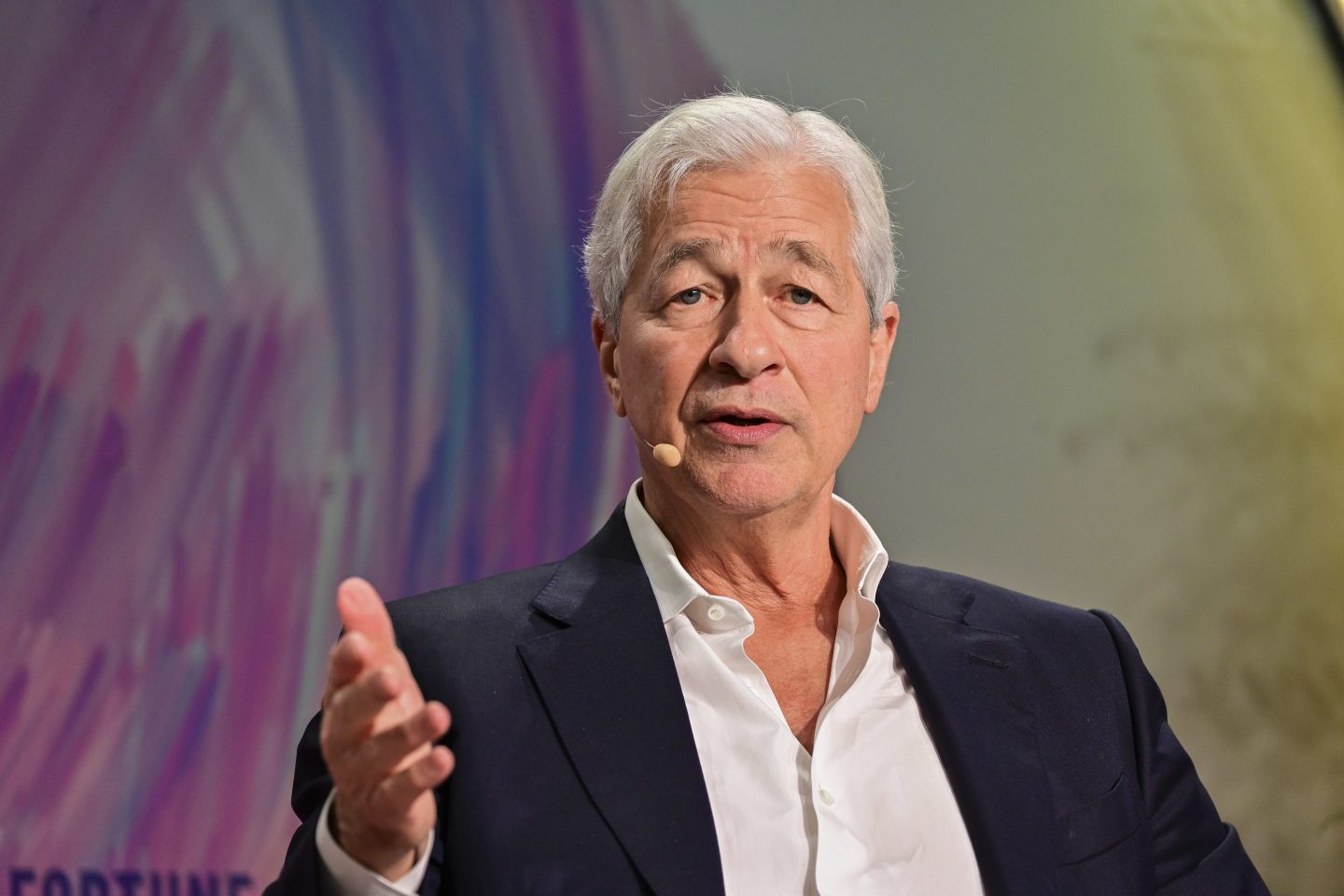If you meet with JPMorgan Chase CEO Jamie Dimon, expect that he’ll have gone through all the pre-reading and will devote 100% of his attention to the topic at hand. But whatever you do, don’t look at your device in front of him.
“None of this nodding off,” said Dimon, who spoke with Fortune editor-in-chief Alyson Shontell in Washington, D.C., for a wide-ranging, one-on-one interview at the annual Fortune Most Powerful Women Summit.
“If you have an iPad in front of me, and it looks like you’re reading your email and your notifications, I’ll tell you to close the damn thing,” said Dimon. “It’s disrespectful.”
And if Dimon finds he can’t give 100% of his attention in meetings the way he used to?
“I should move on,” he said. “You can’t retire in place.”
Sports legends like Patriots Hall of Fame quarterback Tom Brady don’t complain that they’ve been playing the sport for a long time and that they’re tired and need a break to sit out practice or a game, continued Dimon. Instead, they give it their all, every practice and every game. The same is true of being CEO, he said.
“Every day, every meeting,” Dimon gives everything he has, he said.
Dimon, 69, is one of the last Wall Street bank CEOs who successfully led through the 2008 financial crisis to remain in a day-to-day leadership role at a major bank. The CEOs of Goldman Sachs, Morgan Stanley, Bank of America, and Citigroup have all undergone CEO transitions since that time. Among financial firms in the S&P 500, average CEO tenure this year is 9.1 years compared with Dimon’s 19-year track record at JPM, according to Esgauge data. Speculation about when he’ll retire and who is next to lead JPMorgan remains persistent. Last year, Dimon announced that his retirement was—finally—no longer five years away, which has been his refrain whenever he was asked in the past.
Dimon has said the bank’s next leader doesn’t need to be the smartest person in the room, but they need to be a coach, and have “the heart and the soul and curiosity and work ethic and respect,” he said during a podcast last month.
Still, Dimon told Shontell he loves his job and loves what JPM has accomplished in philanthropy, working with cities and municipalities, lending to small businesses, and working with large companies. Although, Dimon admits, he does get tired and need some rest occasionally.
“Management is a lot of fun except for two things,” Dimon joked. “Customers and employees.”
Ultimately, some CEOs are done in because they are good at the job, but they don’t like it, he added. Some decide they just don’t want to do it anymore. At the end of the day, humility, learning every day, not becoming complacent, and not being arrogant are the things that keep a company moving forward, said Dimon.













